Devin: What is your superpower?
Filip: I’ve always been a dreamer. I’ve always been a visionary, always been someone who has had big ambitions and grand ambitions. I have become extremely focused on breaking things down, taking a big vision and saying, OK, so we’re going to be the biggest electric vehicle supplier on the African continent, perhaps for the full global south. How does that break down to what I do today and tomorrow?
Motivated by a genuine passion for reversing climate change, Filip Lövström founded and leads Opibus, now Africa’s largest electric vehicle manufacturer. Based in Kenya, he aspires to build buses, other commercial vehicles and electric motorcycles for the global south.
Vehicle emissions in Sub-Saharan Africa represent a bigger problem than in some other areas. “This region is left with second-hand trucks or vehicles that have very low emission standards,” the Swede says. “So not only is it internal combustion engines, it’s quite poor internal combustion engines as well.”
“Making these vehicles electric by either conversions or building new ones has a massive impact for the emissions that we are seeing here for both the local emissions in the cities, as well as the greenhouse gas emissions impacting the globe,” he says.
Notably, Filip says, Kenya has an overproduction of energy, the vast majority of which comes from renewable sources. “Electric vehicles become increasingly important because we should make use of that energy,” he adds.
“Our first priority from day one when we got here was to actually get vehicles out on the roads,” Filip says. He started by converting safari vehicles to electric because his customers’ customers value nature and want to see their African vacation as doing no harm. “They are extremely motivated to move away from fossil fuel vehicles.”
Now, Opibus is converting buses to operate on electricity. Filip has a clear strategy for bus conversions: provide an ROI to the customer. This goal requires keeping the capital costs down.
Opibus cuts costs by customizing buses to the routes they serve and pairing them with fast charging stations. “We’re deploying the fastest chargers on the African continent as far as we are aware, and we minimize the battery packs,” he says.
“We provide them with a bus that can take them about 120-130 kilometers. And then we put charging stations in each end so we can minimize the raw material that’s used for batteries,” Felip says. “But they charge at every end and top up the batteries with just enough to bring it back up to 100 percent.”
The safari vehicles work similarly, with regular routes. There are other commercial opportunities Filip eyes. “We started out in the safari market, but there is a big market with, for example, the mining industry with all kinds of utility vehicles where you are carrying heavy loads, or you’re driving in rough terrains, which is quite similar to a safari vehicle that jumps around Maasai Mara filled with tourists.”
What has Filip excited the most is the electric motorcycles. “The sheer amount of motorbikes is, I mean, I’m not a native English speaker, but I would definitely say bonkers.”
To start, Opibus is targeting riders who use their bikes for work. “Approximately 5 percent of the population in sub-Saharan Africa earn the majority of their daily income from riding motorbikes.”
Filip says Opibus expects to scale the motorbike business quickly, allowing it to compete directly with conventional motorbikes on price with the advantage of lower operating costs.
“You say either, ‘I’m going to spend $1,300 on a petrol bike and then spend $4 or $5 per day on fuel,’ or ‘I’m going to spend $1,300 on an electric motorbike. I’m going to spend $2 on electricity for charging it,’” he says.
Opibus is moving deliberately toward producing the motorbikes to be sure everything works. “We’re targeting to deploy a few thousand motorbikes [in 2022] and then a few tens of thousands of motorbikes the year after that in 2023, and then after that, we want to make sure that we can scale as quickly as possible up to a couple of hundred thousand of motorbikes by the end of this decade,” Filip says.
“We started out with the first two and a half years of this business completely bootstrapped without any kind of equity investment,” Felip says. Late last year, the company announced a $7.5 million financing rounded structured as $2.5 million in grant funding and the balance in equity. Felip describes it as the “biggest round of financing for electric mobility in sub-Saharan Africa.”
He sees this as the beginning of a process required for scaling the business. “If we actually want to seriously deploy these solutions, we need to put a lot more money to work. So we are going to we’re going to raise a few more rounds.”
Because the business is already generating revenue from safari vehicles and buses, he feels less pressure on fundraising. “I don’t need the fundraising to survive. I need the fundraising to scale up.” He anticipates raising “a few more rounds.”
Filip describes his superpower as the ability to break down a dream or vision into actionable steps; I’ll call it “action-oriented vision.”
How to Develop Action-Oriented Vision As a Superpower
Growing up, Filip acknowledges being distracted by dreams and visions of what he could create but didn’t put into action. “It never really amounted to anything because I spend all my time daydreaming and envisioning what could be,” he confessed.
He made a conscious decision to put dreams into action by breaking down the vision into actionable steps.
He says it starts by identifying the core of what you want. For him, that is reversing climate change.
He breaks down the steps required to get there, focusing on the priority today and tomorrow. “Instead of staring yourself blind at how many steps it is to get there, you start identifying a few milestones along the way.”
Most importantly, he says, you’ve got to start. “Primarily, you start walking because it’s not one giant step that covers a thousand steps that will get us somewhere. It’s a thousand steps covering one giant step.”
Finally, he says, “It’s more important to do something than to do nothing.”
We could summarize his strategy by breaking it down into clear steps:
Identify a clear vision.
Target interim milestones.
Focus on activities today that move you toward your vision.
Start executing.
By following his example for action-oriented vision, you can make it a superpower that will enable you to do more good than you ever imagined.

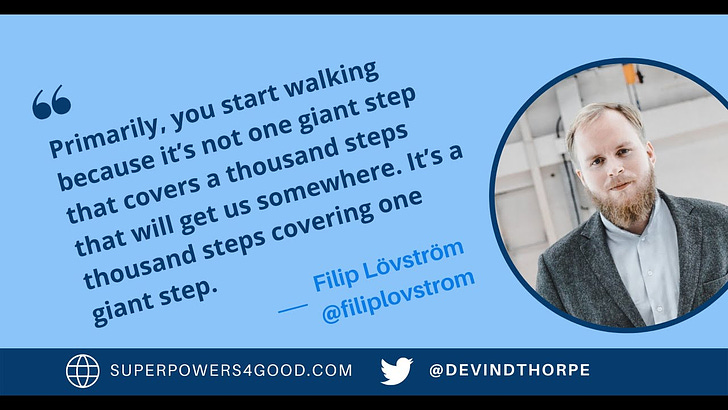


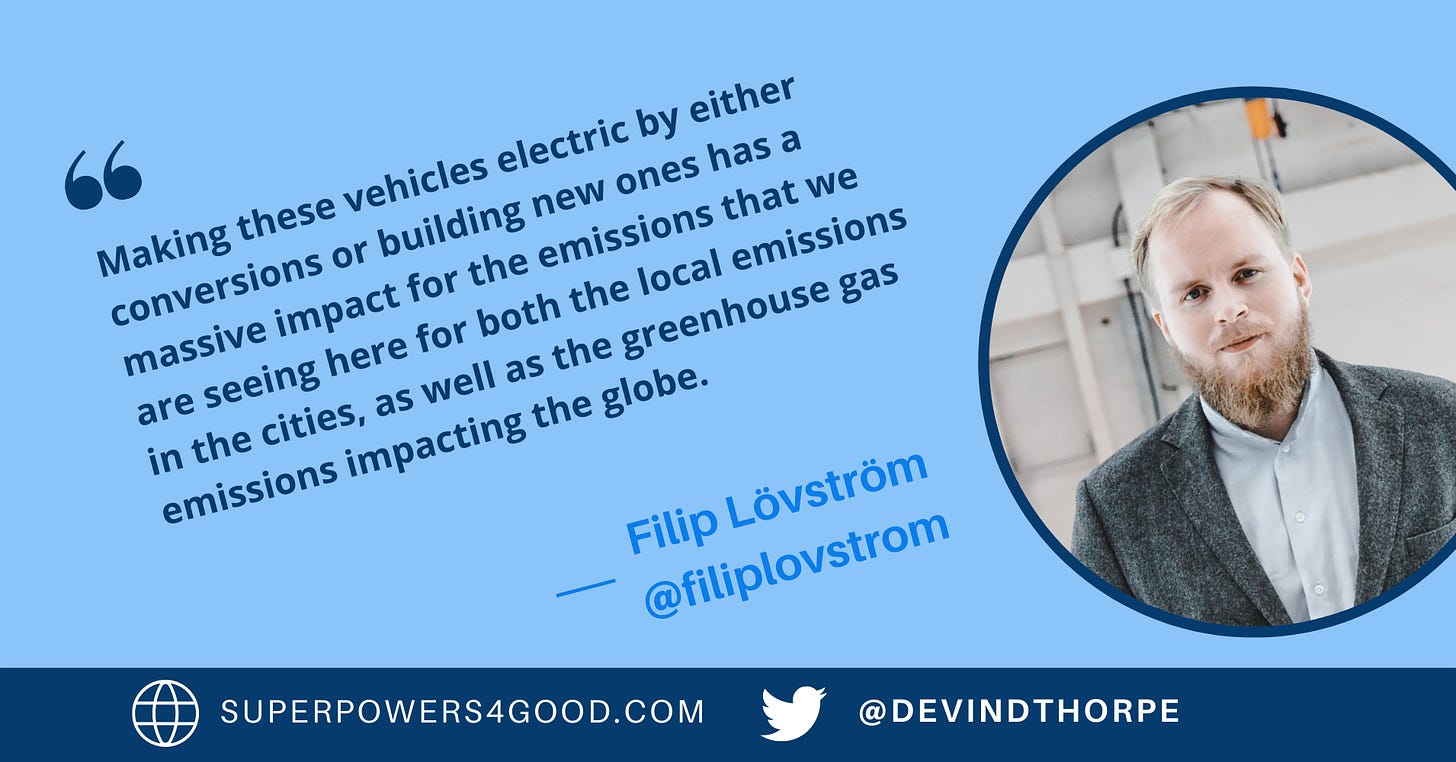
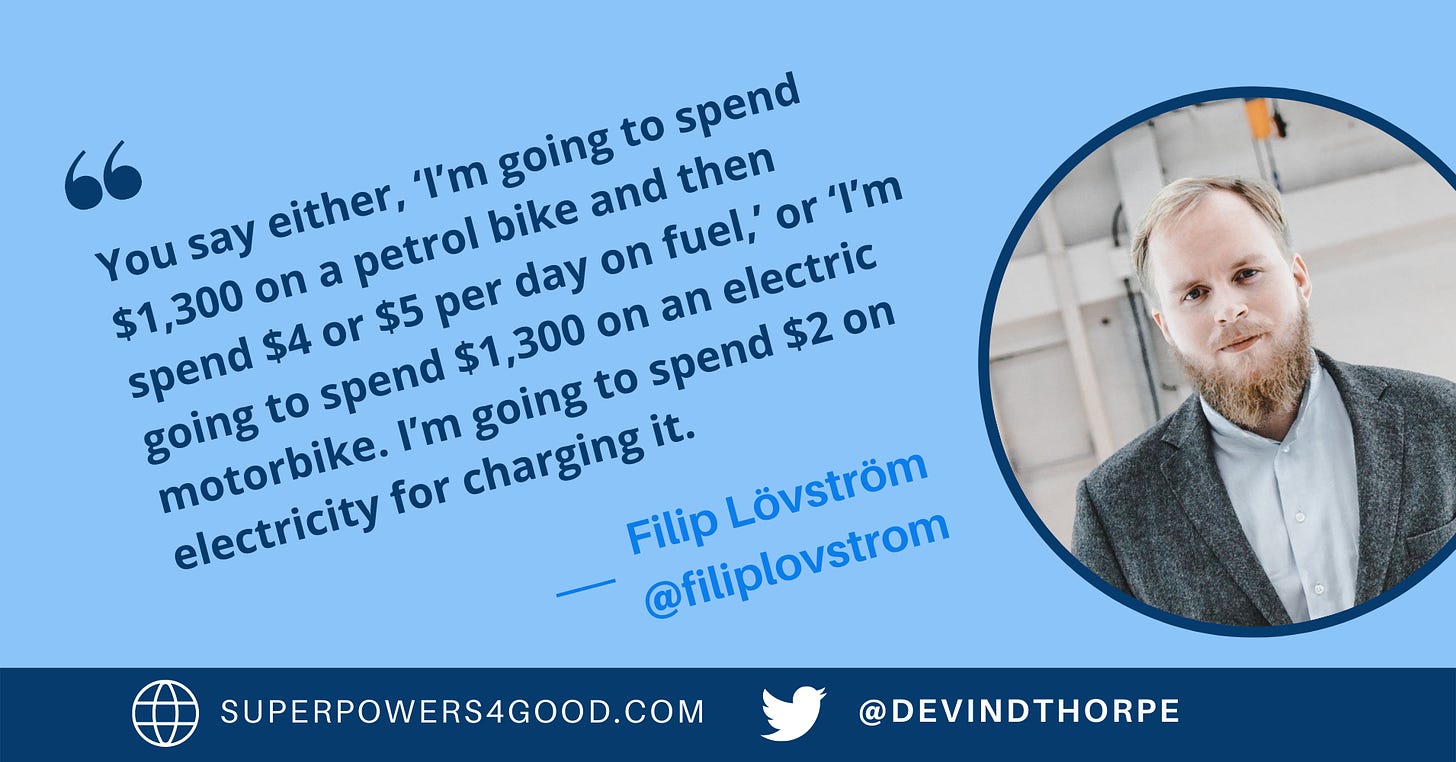
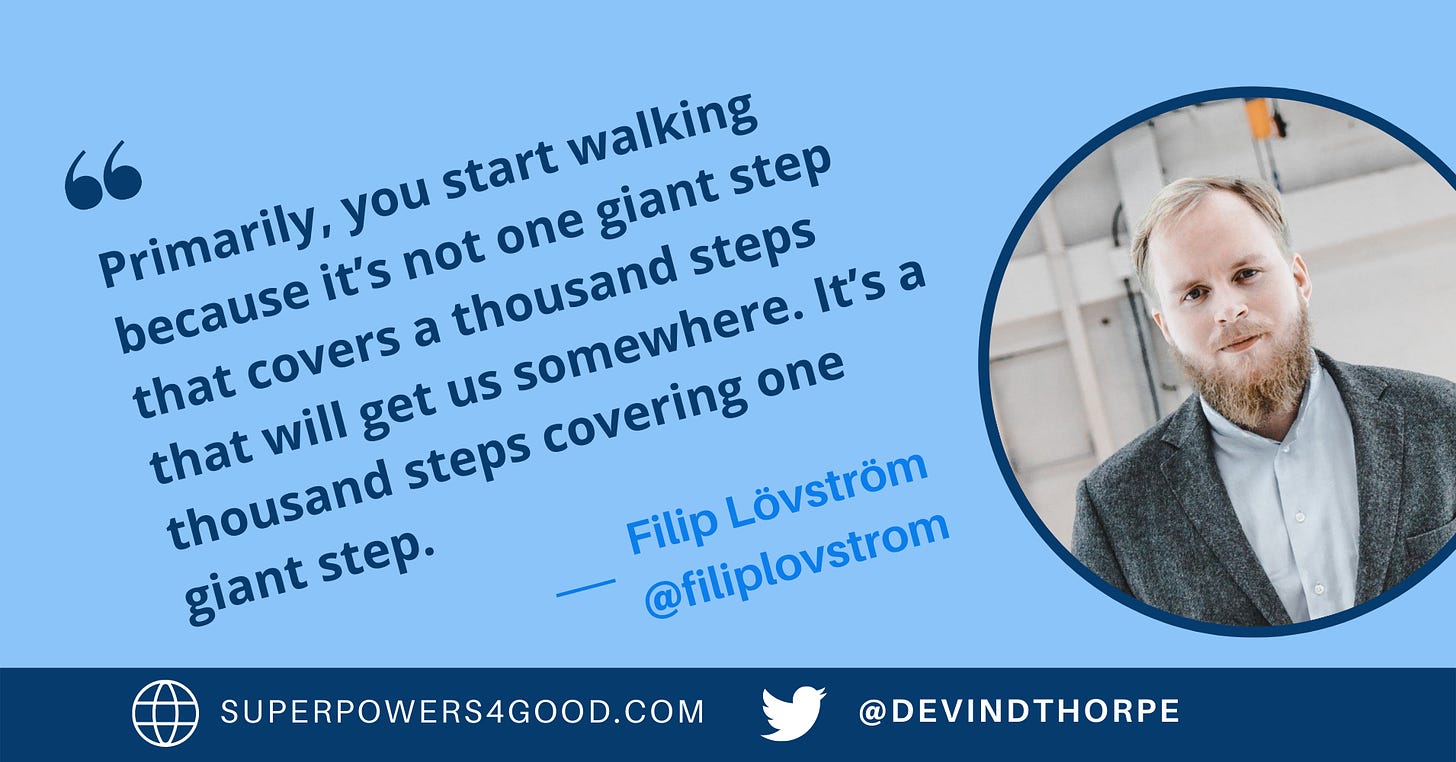











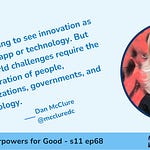






Africa's Largest EV Entrepreneur Shares Vision